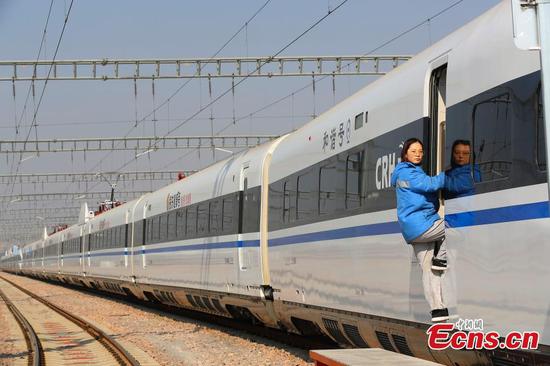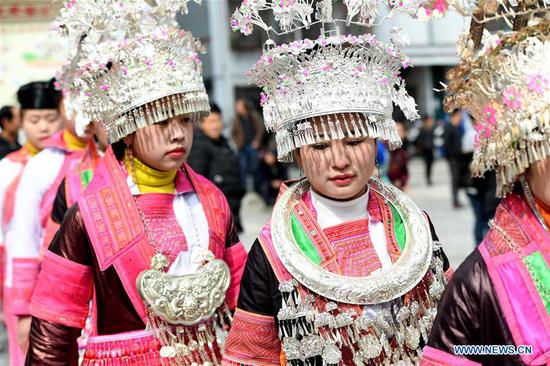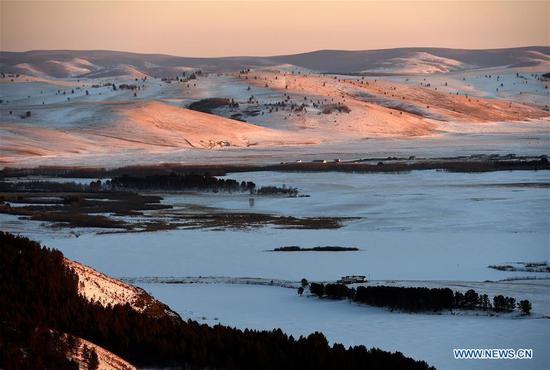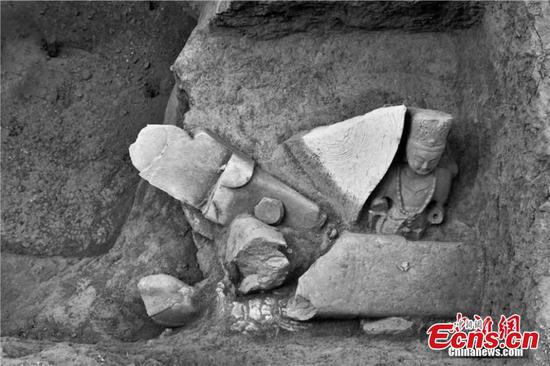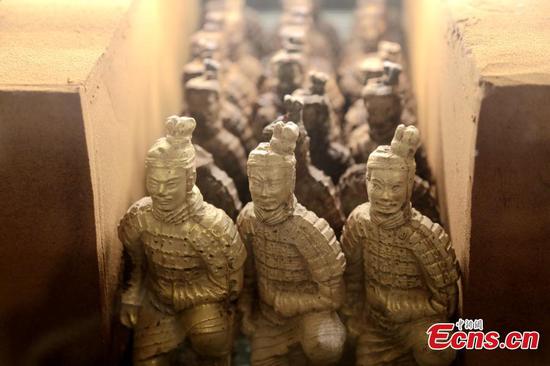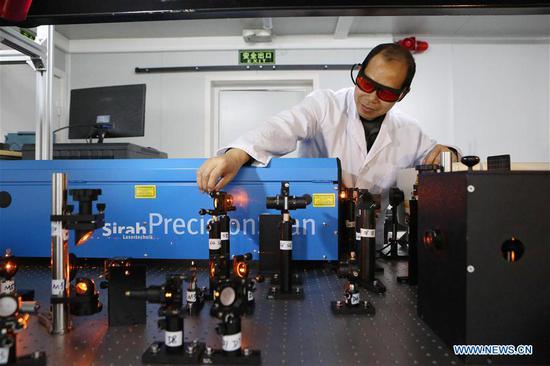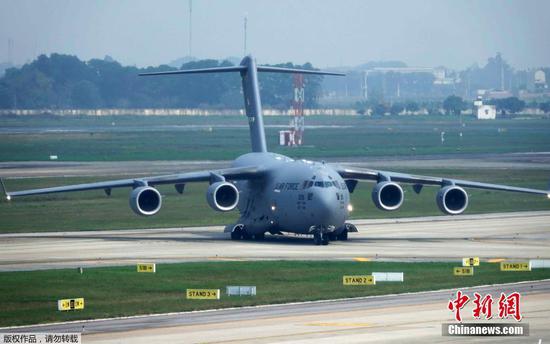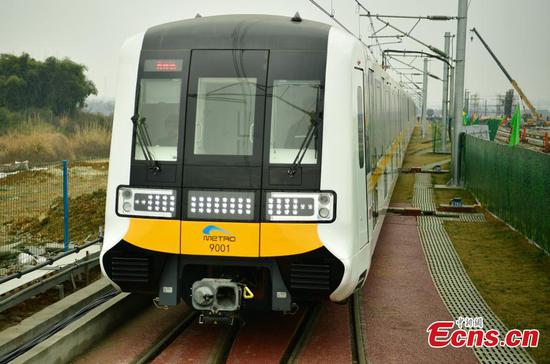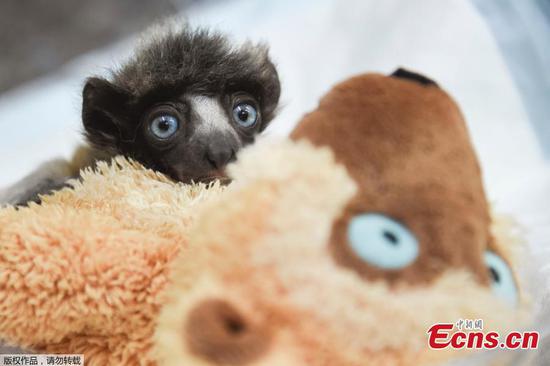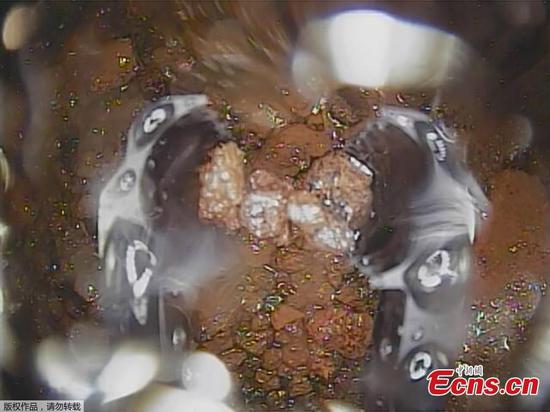
Applicants wait to take a test at Chinese University of Hong Kong, Shenzhen, in Guangdong province in June. Their scores will figure prominently in the admissions process. (HUO JIANBIN/FOR CHINA DAILY)
Scientists and educators in Hong Kong and Macao expressed high expectations for cross-boundary cooperation in research, innovation and nurturing talent, as the Guangdong-Hong Kong-Macao Greater Bay Area entered a new development phase.
They made the remarks the day after the release of a development outline for the area. The outline encourages the region's educational institutions to strengthen collaboration in scientific research and talent exchanges, with the aim of turning the region into an education and talent hub.
The plan will strengthen Hong Kong's role in the region's science and technology development and facilitate the channeling of more talent and resources from the city into innovation-driven development, leading Hong Kong scientist Nancy Ip Yuk-yu said.
Ip, a member of the Chinese Academy of Sciences, told China Daily that she believes more specific measures and cooperative mechanisms in science and technology will be rolled out.
The Greater Bay Area development plan will coordinate and optimize sci-tech resources across the 11-city cluster and stimulate cross-boundary cooperation for scientific innovation and breakthroughs, she said.
Universities and research institutes in the Hong Kong Special Administrative Region will be more proactive in participating in the country's innovation and technology development, said Ip, who is also vice-president for Research and Graduate Studies at Hong Kong University of Science and Technology.
Dennis Lo Yuk-ming, associate dean for research on the Faculty of Medicine at Chinese University of Hong Kong, said that with the support of the bay area, universities in Hong Kong will be able to access more resources and share with partner institutions on the Chinese mainland. Lo looked forward to the possibility of carrying out large-scale joint research programs with counterparts in the region.
The development outline supports researchers in studying and formulating plans for cross-border use of medical data and biological samples, such as blood, necessary for cooperative research. Lo, a chemical pathology expert, welcomed the policy and said he looks forward to its implementation with more concrete measures.
By sharing DNA samples and genetic data across boundaries, scientists will be able to overcome existing limitations and push research forward in the field, Lo said.
Yeh Gar-on, a senior urban planner and a senior professor in Hong Kong University's Department of Urban Planning and Design, said the plan offers new opportunities for technological collaboration between Hong Kong and the mainland.
He said that Hong Kong's scientific institutions, which have extensive international connections, play a leading role in research fields such as biotechnology and chemistry.
He said that to transform the Greater Bay Area into an innovation and technology hub, more cities have ramped up their efforts, including Dongguan, a manufacturing powerhouse that's focused on a tech-driven economy.
Yeh also encouraged Hong Kong's scientific institutions to strengthen collaboration with mainland enterprises to help commercialize scientific outcomes and suggested that Hong Kong invest more in research and development to seize opportunities offered by the Greater Bay Area, as well as in a series of efforts by the central government to boost the city's technological development.
In a statement issued after the bay area's development outline was unveiled, the University of Hong Kong said the promulgation of the plan will offer opportunities for the university to scale up and expand the scope of education and research.
With the aim of turning the region into a world-class knowledge powerhouse, the university believes the plan will promote academic and business collaboration in the region, the statement said. It will also provide a richer and more diverse learning experience for students, it said.
The university has established a cross-disciplinary task force to explore education and research opportunities and will hold discussions with stakeholders in the region, including government officials, educators and researchers.
Yao Jingming, head of the University of Macau's Department of Portuguese, said cross-boundary educational cooperation will contribute to the cultivation of bilingual people who are proficient in Chinese and Portuguese. In turn, that will help the Macao SAR play its role in promoting economic cooperation between China and Portuguese-speaking countries, Yao said.











